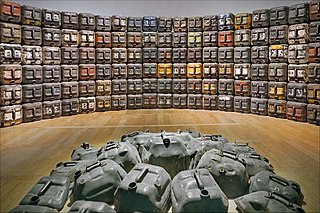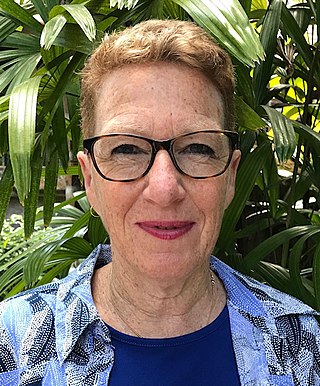The environmental humanities is an interdisciplinary area of research, drawing on the many environmental sub-disciplines that have emerged in the humanities over the past several decades, in particular environmental literature, environmental philosophy, environmental history, science and technology studies, environmental anthropology, and environmental communication. Environmental humanities employs humanistic questions about meaning, culture, values, ethics, and responsibilities to address pressing environmental problems. The environmental humanities aim to help bridge traditional divides between the sciences and the humanities, as well as between Western, Eastern, and Indigenous ways of relating to the natural world and the place of humans within it. The field also resists the traditional divide between "nature" and "culture," showing how many "environmental" issues have always been entangled in human questions of justice, labor, and politics. Environmental humanities is also a way of synthesizing methods from different fields to create new ways of thinking through environmental problems.
Shannon Bell is a Canadian performance philosopher who lives and writes philosophy-in-action, experimental philosophy. Bell is also professor and graduate programme director in the York University Political Science Department, Toronto, Ontario, Canada. She teaches postmodern theory, fast feminism, sexual politics, cyber politics, identity politics and violent philosophy.

Val Plumwood was an Australian philosopher and ecofeminist known for her work on anthropocentrism. From the 1970s, she played a central role in the development of radical ecosophy. Working mostly as an independent scholar, she held positions at the University of Tasmania, North Carolina State University, the University of Montana, and the University of Sydney, and at the time of her death was Australian Research Council Fellow at the Australian National University. She is included in Routledge's Fifty Key Thinkers on the Environment (2001).

Rosi Braidotti is a contemporary philosopher and feminist theoretician. Born in Italy, she studied in Australia and France and works in the Netherlands. Braidotti is currently Distinguished University Professor Emerita at Utrecht University, where she has taught since 1988, and Honorary Professor at RMIT University in Australia. She was professor and the founding director of Utrecht University's women's studies programme (1988–2005) and founding director of the Centre for the Humanities (2007–2016). She has been awarded honorary degrees from Helsinki (2007) and Linkoping (2013); she is a Fellow of the Australian Academy of the Humanities (FAHA) since 2009, and a Member of the Academia Europaea (MAE) since 2014. Her main publications include Nomadic Subjects (2011) and Nomadic Theory (2011), both with Columbia University Press, The Posthuman (2013), Posthuman Knowledge (2019), and Posthuman Feminism (2022) with Polity Press. In 2016, she co-edited Conflicting Humanities with Paul Gilroy, and The Posthuman Glossary in 2018 with Maria Hlavajova, both with Bloomsbury Academic.
Paul Robert Patton is Scientia Professor of Philosophy in the School of History and Philosophy at the University of New South Wales, Sydney, Australia, where he has been since 2002. Patton is known for his publications and conference presentations on Australian Continental political philosophy.
Postcolonialism is the critical academic study of the cultural, political and economic consequences of colonialism and imperialism, focusing on the impact of human control and exploitation of colonized people and their lands. The field started to emerge in the 1960s, as scholars from previously colonized countries began publishing on the lingering effects of colonialism, developing a critical theory analysis of the history, culture, literature, and discourse of imperial power.

Adrian Lisa Parr Zaretsky is an Australian-born philosopher and cultural critic, and dean of the College of Design at the University of Oregon, United States. She specializes in environmental philosophy and activism. In addition, she published on the sustainability movement, climate change politics, activist culture, and creative practice.

Decoloniality is a school of thought that aims to delink from Eurocentric knowledge hierarchies and ways of being in the world in order to enable other forms of existence on Earth. It critiques the perceived universality of Western knowledge and the superiority of Western culture, including the systems and institutions that reinforce these perceptions. Decolonial perspectives understand colonialism as the basis for the everyday function of capitalist modernity and imperialism.
Warwick Hugh Anderson, medical doctor, poet, and historian, is Janet Dora Hine Professor of Politics, Governance and Ethics in the Discipline of Anthropology, School of Social and Political Sciences, and in the Charles Perkins Centre, University of Sydney, where he was previously an Australian Research Council Laureate Fellow (2012–17). He is also honorary professor in the School of Population and Global Health, University of Melbourne. He is a fellow of the Australian Academy of the Humanities, the Academy of Social Sciences in Australia, the Australian Academy of Health and Medical Sciences and the Royal Society of New South Wales, from which he received the History and Philosophy of Science Medal in 2015. For the 2018–19 academic year, Anderson was the Gough Whitlam and Malcolm Fraser Chair of Australian Studies at Harvard University, based in the History of Science Department.
Claire Colebrook, is an Australian cultural theorist, currently appointed Edwin Erle Sparks Professor of English at Pennsylvania State University. She has published numerous works on Gilles Deleuze, visual art, poetry, queer theory, film studies, contemporary literature, theory, cultural studies and visual culture. She is the editor of the Critical Climate Change Book Series at Open Humanities Press.
Ewa Plonowska Ziarek is the Julian Park Professor of Comparative Literature at The State University of New York at Buffalo. She has a major interest in engaging with other scholars on their own terms, and believes that a model of dissensus in philosophy, rather than the traditional consensus model, may produce highly valuable results.
Patricia MacCormack is an Australian scholar who lives and works in London, England. Currently she is Professor of Continental Philosophy in English and Media at Anglia Ruskin University, Cambridge.
Jane Bennett is an American political theorist and philosopher. She is the Andrew W. Mellon Professor of the Humanities at the Department of Political Science, Johns Hopkins University School of Arts and Sciences. She was also the editor of the academic journal Political Theory between 2012 and 2017.
Andrea Nye is a feminist philosopher and writer. Nye is a Professor Emerita at the University of Wisconsin–Whitewater for the Philosophy and Religious Studies Department and an active member of the Women's Studies Department. In 1992, Nye received the University of Wisconsin–Whitewater Award for Outstanding Research.
Siobhan O'Sullivan was an Australian political scientist and political theorist. She was an associate professor in the School of Social Sciences, University of New South Wales. Her research focused, among other things, on animal welfare policy and the welfare state. She was the author of Animals, Equality and Democracy and a coauthor of Getting Welfare to Work and Buying and Selling the Poor. She co-edited Contracting-out Welfare Services and The Political Turn in Animal Ethics. She was the founding host of the regular animal studies podcast Knowing Animals, as well as a founder of the Australasian Animal Studies Association.
Beth Lord is a Canadian philosopher specialising in the history of philosophy, especially the work and influence of Immanuel Kant and Baruch Spinoza, and contemporary Continental philosophy. She is currently a Professor and Head of School in the School of Divinity, History and Philosophy at the University of Aberdeen, where she has worked since 2013.

Barbara Bolt is an Australian academic and artist. She is the current director of the Victorian College of the Arts which is part of the Faculty of Fine Arts and Music at the University of Melbourne. She is a research theorist her research investigates art theory and criticism, art as research. Her art practice investigates the material possibilities of painting in a digital age and the relationship between painting and light. She was on the executive board of the international Society for Artistic Research (SAR), which produces the Journal of Artistic Research (JAR) and is a member of the editorial board of Australian Art Education.

Daniel W. Smith is an American philosopher, academic, researcher, and translator. He is a professor in the Department of Philosophy at Purdue University, where his work is focused on 19th and 20th century continental philosophy.

Debashish Banerji is a Bengali scholar. He writes in English and specializes in Integral Yoga, Indian Philosophy and Psychology, Art History and Cultural Theory. He is the Haridas Chaudhuri Professor of Indian Philosophies and Cultures and the Doshi Professor of Asian Art at the California Institute of Integral Studies, San Francisco, where he also chairs the department of East-West Psychology.
New materialism is a broad field within contemporary philosophy which seek to engage with the traditions of materialist philosophy as well as develop new articulations between intellectual currents in science and philosophy. New Materialists often draw on Gilles Deleuze and Félix Guattari's theories of the rhizome, as well as materialist interpretations of Baruch Spinoza's concept of immanence. Many philosophical tendencies are associated with new materialism, in such a way that the field resists a common definition. Common characteristics of New Materialists include the rejection of representationalism, humanism, and the intrinsic distinction of subjectivity and knowledge. New materialism also shares a critical reaction to the theoretical dominance of radical constructionism as well as the normative and analytic political theory. Some theoreticians also emphasize the critique of the deficits and inconsistencies of previous paradigms of materialism, such as phenomenology and Marxism.






